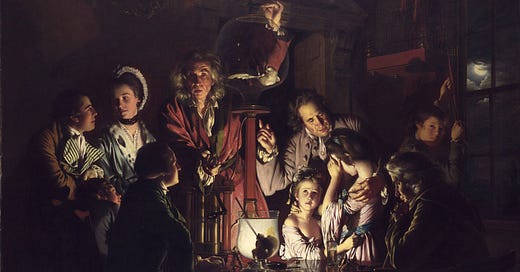Welcome back to the summer book club.
We’re reading Self Made: Creating Our Identities from DaVinci to the Kardashians. We’ve moved through the introduction and the first chapter. Today, we’re on to chapter two.
For now, conversation is in the comments. We might open up a Zoom session in a few weeks for a more personable chat when the book’s key ideas have been teased out a bit.
Chapter 2: “Shaking Off the Yoke of Authority”
Three Things to Notice
In order for self-making to become plausible, the world first needed to become “a blank canvas rife for reinvention” (34). This was achieved during the Enlightenment, an intellectual and philosophical movement in Western Europe from around 1680-1790. The Enlightenment left every man in a state of “metaphorical nakedness” in which “that man could be truly himself and free” (32).
The disenchantment of custom emerged as a key Enlightenment theme. Both words are important. Custom refers to the dictates of king, community, and church (33). These weren’t simply rejected in the Enlightenment but disenchanted. For the first time in history, they started to be seen not as “innate or God-given but mere accidents of history” (31).
The Enlightenment replaced the power of custom with the power of desire, forging a new vision of man: “a human being whose own desires, rather than those of an external authority, gave him the power to make himself the closest thing to a divinity in a godless world” (42).
Notable Quote
Today's self-makers are unlikely to be as extreme as [the Marquis de] Sade or even Rameau’s nephew. But what they share with their Enlightenment forebears is a willingness to celebrate human freedom in the abstract, while seeing the greatest threat to human liberty in other (presumably lesser) human beings themselves. Today's narrative of self-making, likewise, all too often divides the world into thrillingly free individuals and the boring, bovine herd. And the tantalizing allure of transgression—sexual, moral, aesthetic, or otherwise—remains one of the most profitable ways to tell the world which category you belong to.
Conversation starters (pick one)
What did you discover in this chapter that you never knew before, or what were you reminded of in a fresh way?
In what ways does transgression (sexual, moral, aesthetic, or other) remain a profitable way to tell the world who you are?
See you next week for chapters three and four — “A Sneer for the World” and “WORK! WORK!! WORK!!!”.




